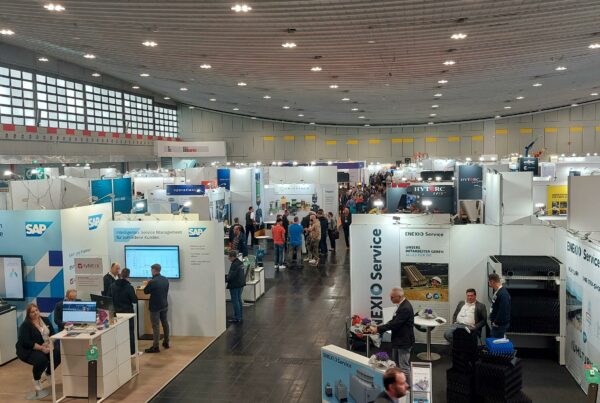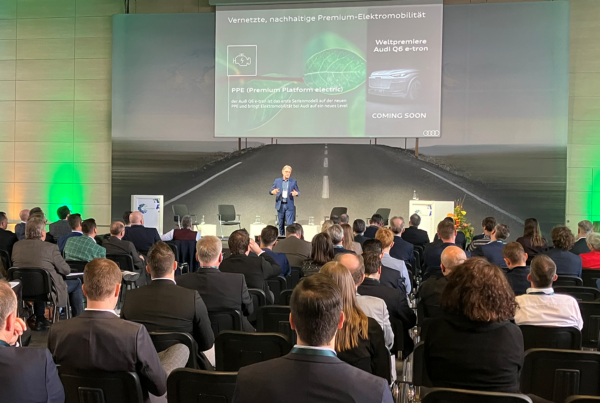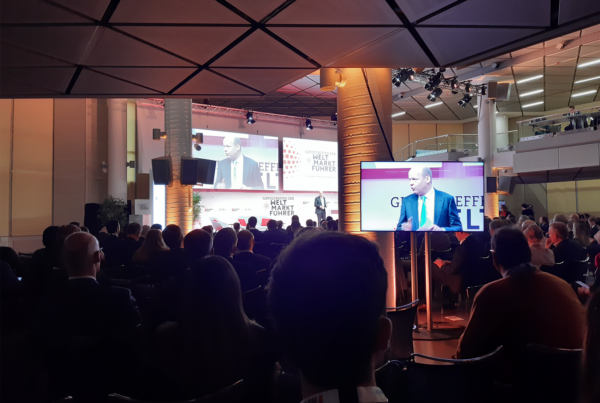Challenges and Solutions for the Mobility of the Future
Amidst a time of change and challenges, leading companies gathered at the Automotive Logistics Forum 2024 at DAIMLER TRUCK in Wörth am Rhein. The Automotive Logistics Forum 2024 (ALF) was held under the theme “All-electric – logistics in the new mobility!” and thus focused intensively on the challenges and solutions of future mobility. Also addressed were their impacts, among others, on the supply chain. Given the changes and increasing technological competition in e-mobility, there is now a need to ensure comprehensive transparency within the supply chain down to the raw material level. The aim is to ensure the supply of battery cells and semiconductors. The ALF 2024 provided a unique opportunity for discussions and exchange.
Artificial Intelligence (AI) and its Potential in the Age of Digitization
The event days were characterized by in-depth discussions about the role of digitization and artificial intelligence (AI) in the industry. Companies that embrace the use of AI open up new potentials in terms of quality and efficiency. AI is not seen as a replacement but as a support for employees along the entire value chain. Another important focus was on the impacts and significance of AI and digitization for the labor market. Especially in the context of demographic change, digitization and the use of AI can make jobs more attractive and efficient. The discussions highlighted that the use of AI in companies will have diverse and comprehensive impacts along the entire value chain and its areas of work.

Decarbonization of the Industry
Discussions on the decarbonization of the industry and the promotion of a circular economy illustrated companies’ efforts not only to reduce their CO2 emissions but also to establish sustainable production processes. At the center of these discussions were topics such as increased use of renewable energies and reduction of material consumption to minimize the environmental impacts of the industry.
European legislative procedures such as “Fit for 55”, the “Critical Raw Materials Act”, the “Net Zero Industry Act”, and the battery regulation impose additional high requirements on the industry. These regulations stipulate that by 2030, for example, 65% of all new vehicles registered in the EU must be emission-free. Furthermore, 50% of critical components are to be sourced locally, posing major challenges to the industry. This transformation affects not only the automotive industry but the entire industrial and logistics landscape. A comprehensive transformation process lies ahead, requiring a realignment of production and logistics processes to meet sustainability and environmental protection requirements. A collective effort is required to successfully manage this change and ensure a sustainable future for generations to come.
comepack at the Automotive Logistics Forum 2024

The discussions and presentations at the ALF2024 showed that companies like comepack play a central role in shaping a future-proof and sustainable economy. The commitment to sustainability and innovation is reflected in comepack’s products and services.
In a time of change and uncertainty, comepack remains committed to advancing the vision of a sustainable and efficient supply chain, actively shaping the future, and driving innovative solutions for a sustainable and efficient supply chain.
Our Newest
Blog Posts

On Tour in February: A Recap of Exciting Events






